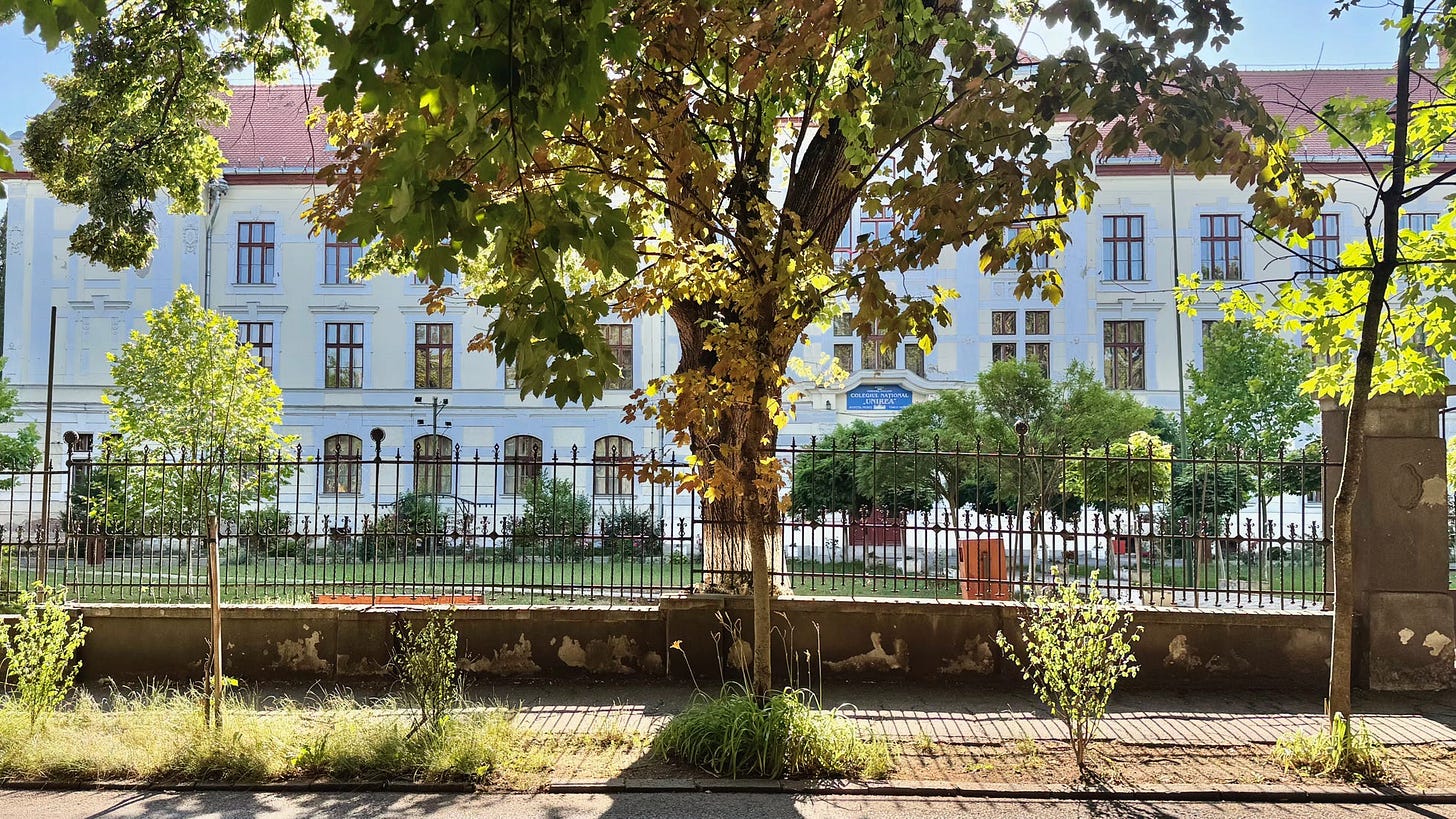Târgu Mureș is a city in Transylvania, nestled between lush green hills and the Mureș River. Since 2002, the city has quietly lost a quarter of its population, which either makes it a cautionary tale or a well-kept secret, depending on which season of life you’re in and whether going out after 9pm sounds like self-care or self-harm to you.
The skyline hasn’t noticeably changed in two decades. Some windows have new shutters. A few sidewalks are more cracked. Buses still run. To take the SATs, you’d still have to travel hours to a nearby city large enough to have proctors.
In Târgu Mureș, we sleep in until noon. The bells from the city’s main Orthodox church chime every hour, but they hurry no one. Days float by like soft dreams, interrupted only by the knock of a plum dropping onto the sidewalk, or the sound of kids crunching over gravel on bikes after school. There’s a nationally regarded medical school with a regional hospital that keeps the economy steady. Pharmacies line the blocks. Cafes spill onto sidewalks with long tables and tall glasses of Borsec, and not a laptop in sight. No one checks the time.
Time has wandered off here, and we’ve collectively agreed to stop chasing it.
Europe’s economy is a slower creature these days. GDP growth in the EU hovered under 1% in 2024. Some call it stagnation, some call it economic aging. People here don’t call it anything at all. They’re busy tending things: children, vegetables, routines.
Gardens grow behind houses and along the edges of rail tracks. Pole beans climb fences. Peppers hang low. Fruit trees lean toward the road. Early in the morning, men unload the day’s pickings from the backs of Dacia trucks: strawberries, cherries, apricots, peaches, plums. What grows here is what’s eaten. There’s no concept of “farm to table” because there is no other table. We slice tomatoes still warm from the sun. Cucumbers snap when we bite in. We eat slowly, over conversation. I close my eyes between bites.
If presence is what we’re all working so hard to buy back, why not practice it now?
In America, we’re told to Lean In (2013) so we can Power Pause (2025) a decade later, as if peace is something we earn in hourly installments like PTO. VCs tell startups to flap their wings harder and faster. And if you pause long enough to eat lunch without checking Slack, someone will raise a bridge round to replace you with someone who didn’t. But as Warren Buffett once said, nine pregnant women can’t have a baby in one month (though it won’t stop someone from raising a seed round to try).
Here in Transylvania, people are already living that someday without YC fanfare, without Series E funding, without needing to earn it. Here, we taste the fruits of summer before the fruit is gone, before the sun sets, before we convince ourselves that stillness has to be earned. Here, tomato growers have always known what Silicon Valley has forgotten: some things are sweetest if you let them ripen with time.
In two decades, the skyline in Târgu Mures hasn’t changed. But maybe we can.




